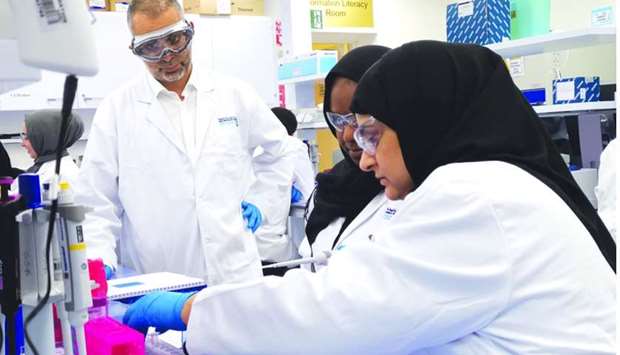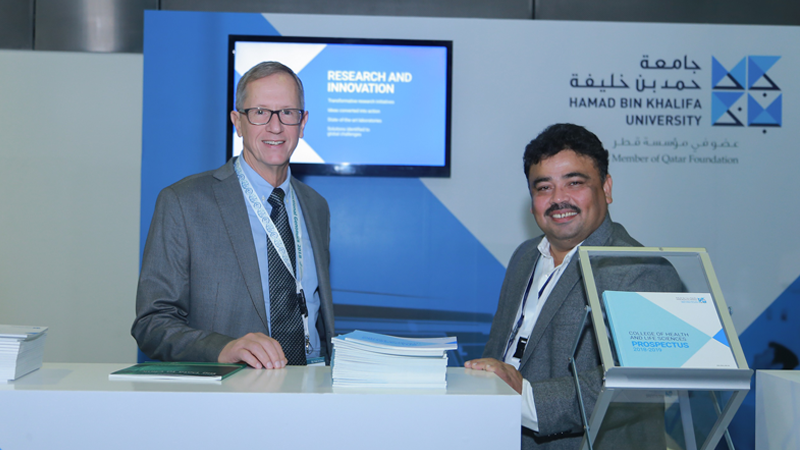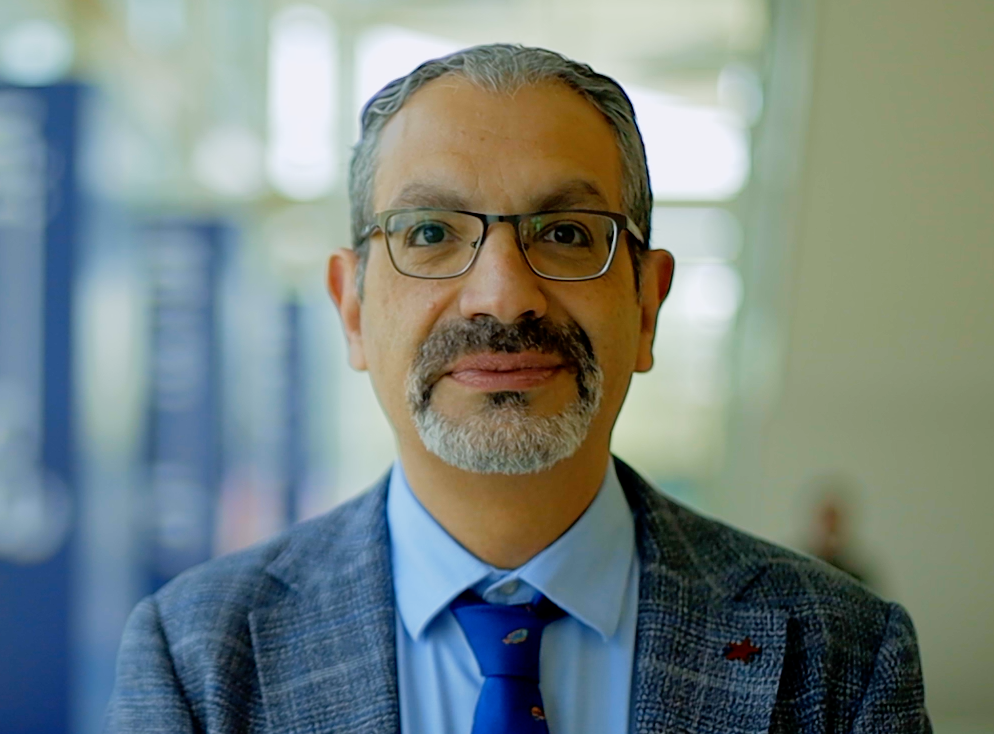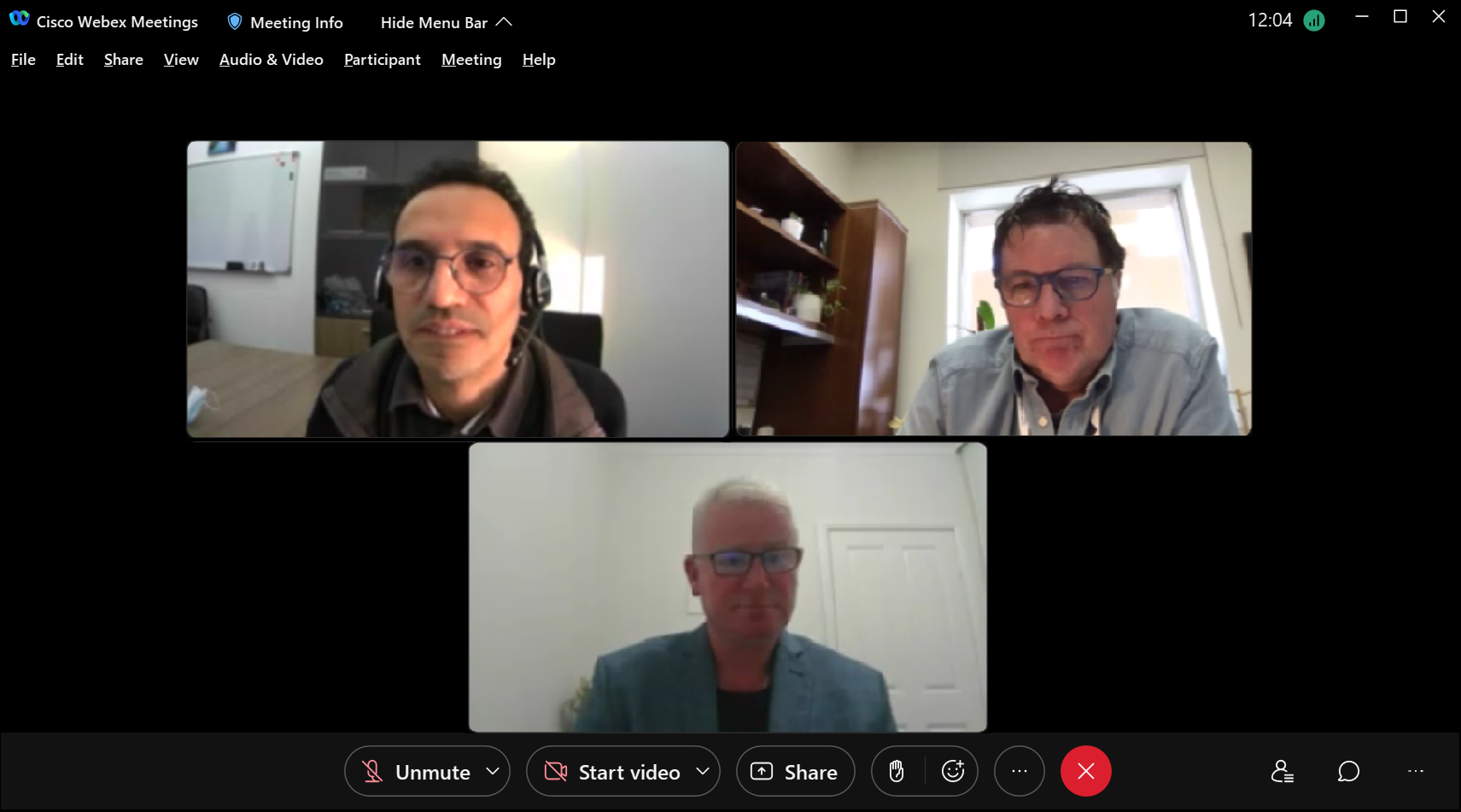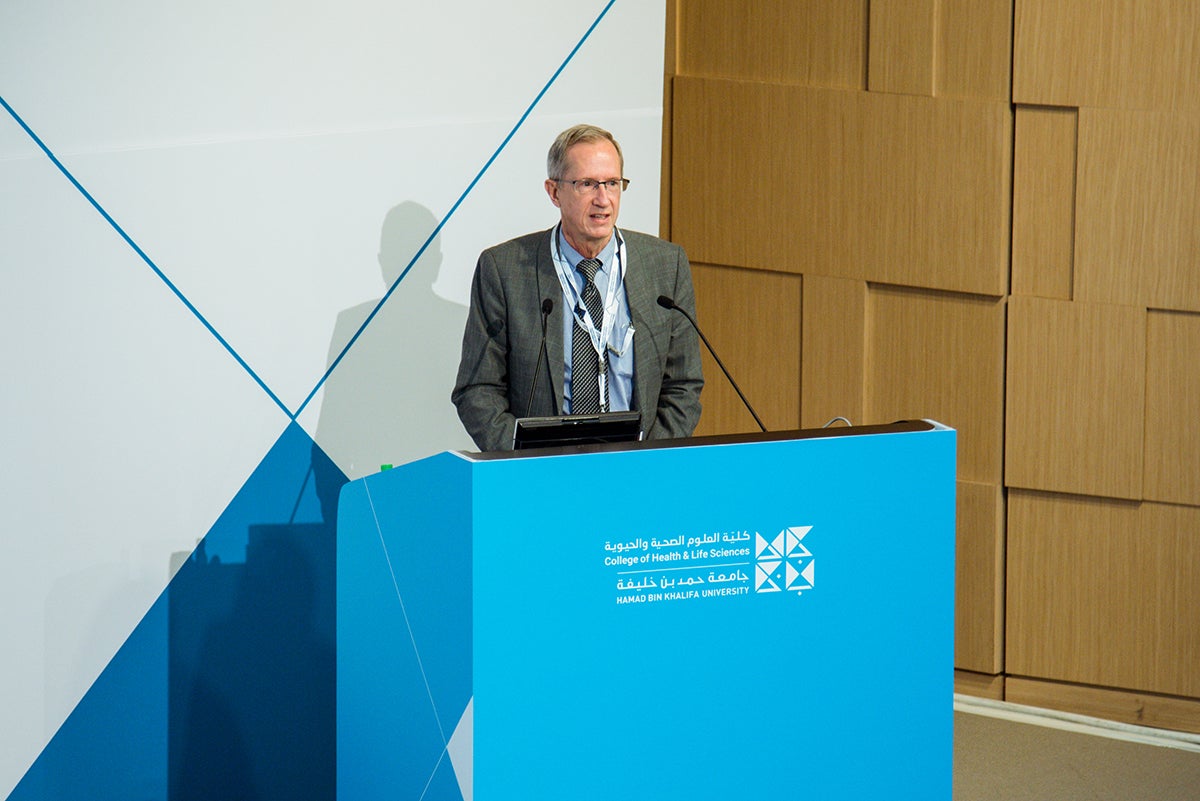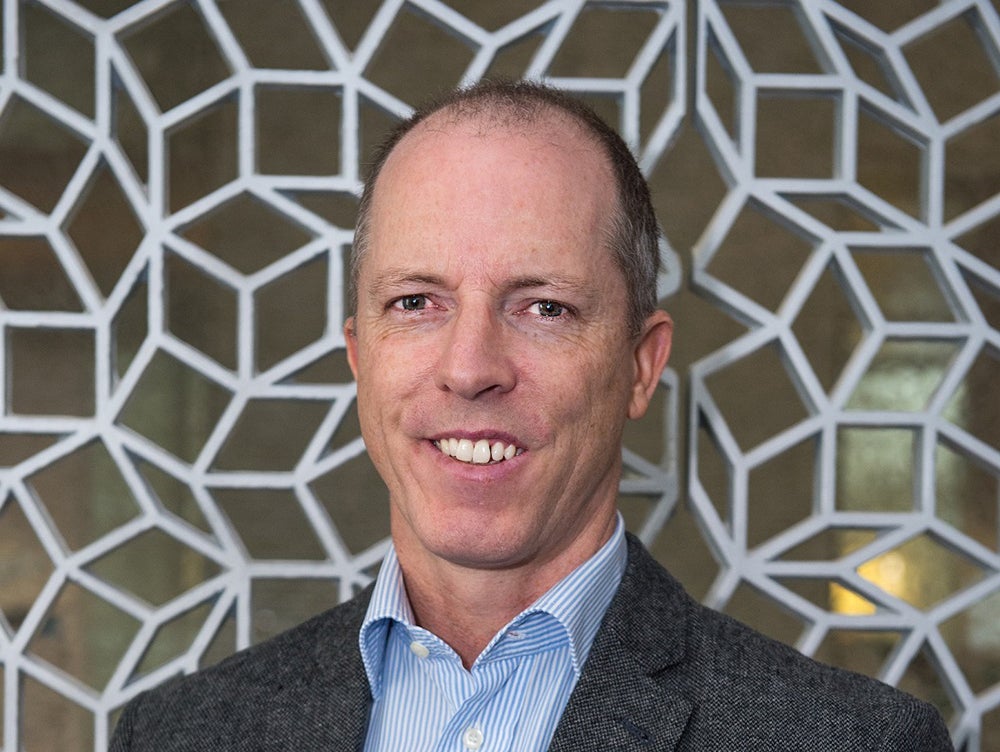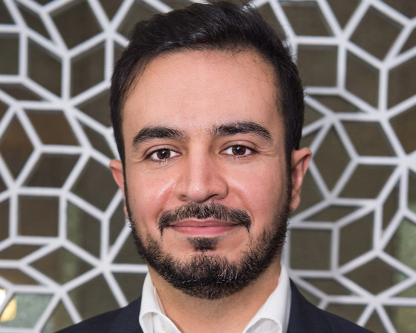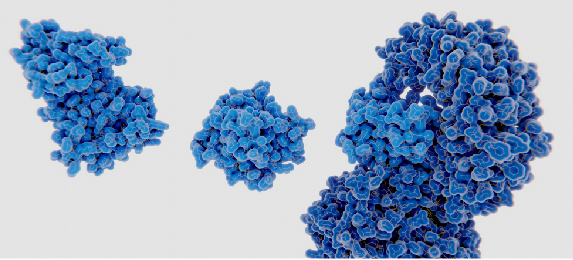
College of Health and Life Sciences Talk Spotlights Renowned Scientist’s Breakthrough on Cell Death-Driven Inflammation
Genentech’s Dr. Vishva M. Dixit discusses a new finding in cell death research that could generate novel therapeutics
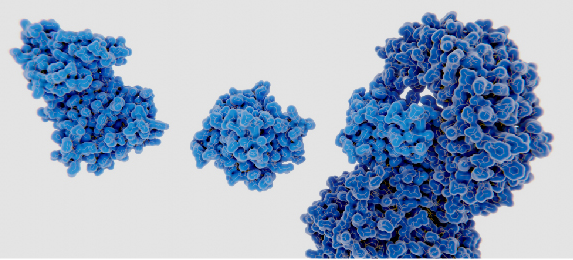
The College of Health and Life Sciences (CHLS) at Hamad Bin Khalifa University (HBKU) recently presented a talk by Dr. Vishva M. Dixit, Vice President of Early Discovery Research at Genentech Inc. and one of the world’s most eminent biomedical science researchers.
Titled The Non-Canonical Inflammasome Pathway, the seminar on September 16 was an opportunity for HBKU faculty, researchers, and graduate students to engage with a pioneering figure in the scientific community. Dr. Dixit’s publications rank among the most-cited in the world and his work explaining the molecular mechanisms of inflammation has become part of standard scientific textbooks. He also oversees Genentech’s postdoctoral fellowship program. The interactive discussions were moderated by Dr. Fadel Tissir, professor at CHLS.
Dr. Dixit presented an update on his team’s discovery that the protein ninjurin-1 (NINJ1) is an important driver of inflammation. His laboratory has recorded many pioneering research firsts that have defined the biochemical framework of the cell death pathway. This latest finding on the role of NINJ1 is widely recognized to have potential implications for novel strategies and therapeutics to target cell death-driven inflammation, and diseases with a prominent inflammatory component.
Commenting after the talk, Dr. Omar Khan, assistant professor at CHLS, said: “Dr. Dixit’s seminal biomedical research has advanced the scientific community’s understanding of cell death signaling and inflammation, and how it can help the discovery of innovative treatments. For the CHLS and HBKU community, his talk was a tremendous learning opportunity. It will certainly enrich our work with cutting-edge knowledge to address pressing national and regional health challenges, and educate future generations of biomedical research scientists.”
For more information on the work of the College of Health and Life Sciences, please visit chls.hbku.edu.qa
Related News

HBKU College of Health and Life Sciences and Equine Veterinary Medical Center Sign MoU

Faculty at College of Health and Life Sciences Selected as Members of the Royal Society of Biology
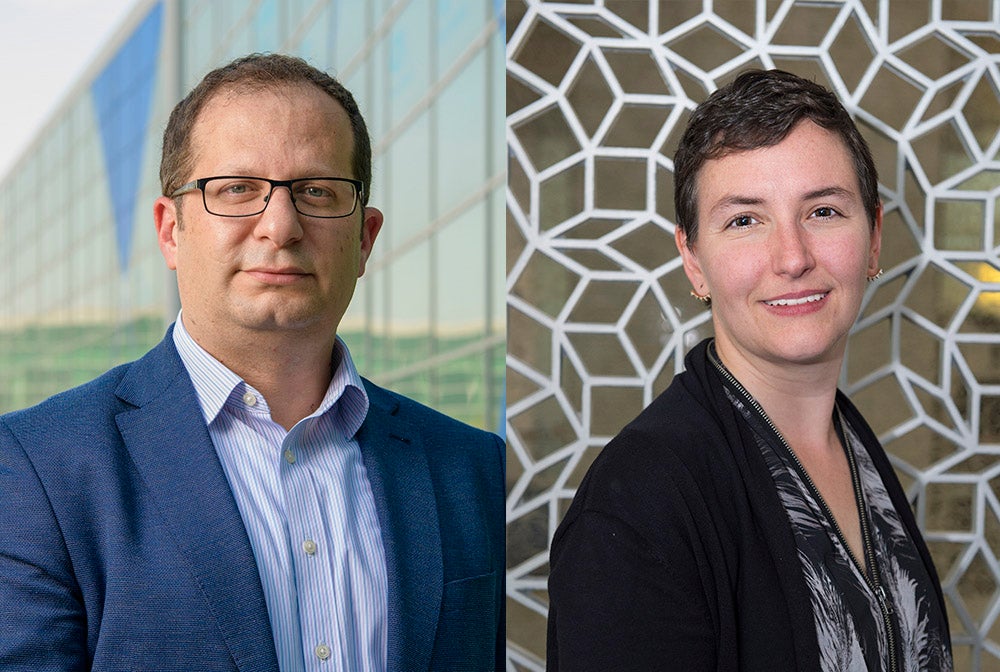
HBKU’s College of Health and Life Science Researchers Awarded Two Major Grants
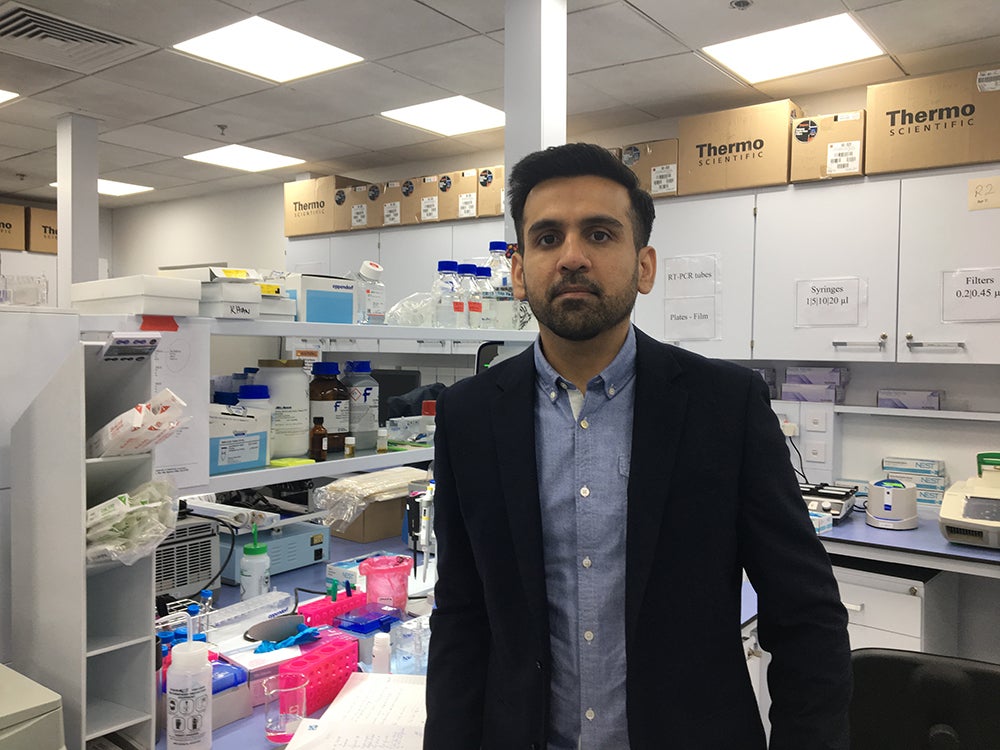
HBKU College of Health and Life Sciences Faculty Member Elected to Prestigious Biology Council
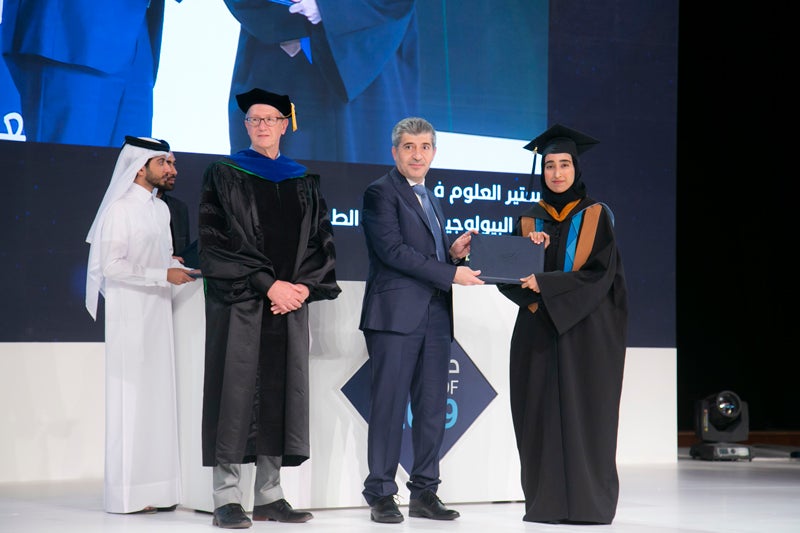
HBKU’s College of Health and Life Sciences Graduates Tackling Qatar’s Pressing Challenges

HBKU College of Health and Life Sciences and Equine Veterinary Medical Center Sign MoU

Faculty at College of Health and Life Sciences Selected as Members of the Royal Society of Biology

HBKU’s College of Health and Life Science Researchers Awarded Two Major Grants

HBKU College of Health and Life Sciences Faculty Member Elected to Prestigious Biology Council

HBKU’s College of Health and Life Sciences Graduates Tackling Qatar’s Pressing Challenges

HBKU College of Health and Life Sciences and Equine Veterinary Medical Center Sign MoU

Faculty at College of Health and Life Sciences Selected as Members of the Royal Society of Biology

HBKU’s College of Health and Life Science Researchers Awarded Two Major Grants

HBKU College of Health and Life Sciences Faculty Member Elected to Prestigious Biology Council

HBKU’s College of Health and Life Sciences Graduates Tackling Qatar’s Pressing Challenges

HBKU College of Health and Life Sciences and Equine Veterinary Medical Center Sign MoU

Faculty at College of Health and Life Sciences Selected as Members of the Royal Society of Biology

HBKU’s College of Health and Life Science Researchers Awarded Two Major Grants

HBKU College of Health and Life Sciences Faculty Member Elected to Prestigious Biology Council

HBKU’s College of Health and Life Sciences Graduates Tackling Qatar’s Pressing Challenges

HBKU College of Health and Life Sciences and Equine Veterinary Medical Center Sign MoU

Faculty at College of Health and Life Sciences Selected as Members of the Royal Society of Biology

HBKU’s College of Health and Life Science Researchers Awarded Two Major Grants

HBKU College of Health and Life Sciences Faculty Member Elected to Prestigious Biology Council

HBKU’s College of Health and Life Sciences Graduates Tackling Qatar’s Pressing Challenges

HBKU College of Health and Life Sciences and Equine Veterinary Medical Center Sign MoU

Faculty at College of Health and Life Sciences Selected as Members of the Royal Society of Biology

HBKU’s College of Health and Life Science Researchers Awarded Two Major Grants

HBKU College of Health and Life Sciences Faculty Member Elected to Prestigious Biology Council

HBKU’s College of Health and Life Sciences Graduates Tackling Qatar’s Pressing Challenges

HBKU College of Health and Life Sciences and Equine Veterinary Medical Center Sign MoU

Faculty at College of Health and Life Sciences Selected as Members of the Royal Society of Biology

HBKU’s College of Health and Life Science Researchers Awarded Two Major Grants

HBKU College of Health and Life Sciences Faculty Member Elected to Prestigious Biology Council

HBKU’s College of Health and Life Sciences Graduates Tackling Qatar’s Pressing Challenges

HBKU College of Health and Life Sciences and Equine Veterinary Medical Center Sign MoU

Faculty at College of Health and Life Sciences Selected as Members of the Royal Society of Biology

HBKU’s College of Health and Life Science Researchers Awarded Two Major Grants

HBKU College of Health and Life Sciences Faculty Member Elected to Prestigious Biology Council

HBKU’s College of Health and Life Sciences Graduates Tackling Qatar’s Pressing Challenges

HBKU College of Health and Life Sciences and Equine Veterinary Medical Center Sign MoU

Faculty at College of Health and Life Sciences Selected as Members of the Royal Society of Biology

HBKU’s College of Health and Life Science Researchers Awarded Two Major Grants

HBKU College of Health and Life Sciences Faculty Member Elected to Prestigious Biology Council

HBKU’s College of Health and Life Sciences Graduates Tackling Qatar’s Pressing Challenges

HBKU College of Health and Life Sciences and Equine Veterinary Medical Center Sign MoU

Faculty at College of Health and Life Sciences Selected as Members of the Royal Society of Biology

HBKU’s College of Health and Life Science Researchers Awarded Two Major Grants

HBKU College of Health and Life Sciences Faculty Member Elected to Prestigious Biology Council

HBKU’s College of Health and Life Sciences Graduates Tackling Qatar’s Pressing Challenges

HBKU College of Health and Life Sciences and Equine Veterinary Medical Center Sign MoU

Faculty at College of Health and Life Sciences Selected as Members of the Royal Society of Biology

HBKU’s College of Health and Life Science Researchers Awarded Two Major Grants

HBKU College of Health and Life Sciences Faculty Member Elected to Prestigious Biology Council

HBKU’s College of Health and Life Sciences Graduates Tackling Qatar’s Pressing Challenges

HBKU College of Health and Life Sciences and Equine Veterinary Medical Center Sign MoU

Faculty at College of Health and Life Sciences Selected as Members of the Royal Society of Biology

HBKU’s College of Health and Life Science Researchers Awarded Two Major Grants

HBKU College of Health and Life Sciences Faculty Member Elected to Prestigious Biology Council

HBKU’s College of Health and Life Sciences Graduates Tackling Qatar’s Pressing Challenges

HBKU College of Health and Life Sciences and Equine Veterinary Medical Center Sign MoU

Faculty at College of Health and Life Sciences Selected as Members of the Royal Society of Biology

HBKU’s College of Health and Life Science Researchers Awarded Two Major Grants

HBKU College of Health and Life Sciences Faculty Member Elected to Prestigious Biology Council

HBKU’s College of Health and Life Sciences Graduates Tackling Qatar’s Pressing Challenges

HBKU College of Health and Life Sciences and Equine Veterinary Medical Center Sign MoU

Faculty at College of Health and Life Sciences Selected as Members of the Royal Society of Biology

HBKU’s College of Health and Life Science Researchers Awarded Two Major Grants

HBKU College of Health and Life Sciences Faculty Member Elected to Prestigious Biology Council

HBKU’s College of Health and Life Sciences Graduates Tackling Qatar’s Pressing Challenges

HBKU College of Health and Life Sciences and Equine Veterinary Medical Center Sign MoU

Faculty at College of Health and Life Sciences Selected as Members of the Royal Society of Biology

HBKU’s College of Health and Life Science Researchers Awarded Two Major Grants

HBKU College of Health and Life Sciences Faculty Member Elected to Prestigious Biology Council

HBKU’s College of Health and Life Sciences Graduates Tackling Qatar’s Pressing Challenges

HBKU College of Health and Life Sciences and Equine Veterinary Medical Center Sign MoU

Faculty at College of Health and Life Sciences Selected as Members of the Royal Society of Biology

HBKU’s College of Health and Life Science Researchers Awarded Two Major Grants

HBKU College of Health and Life Sciences Faculty Member Elected to Prestigious Biology Council

HBKU’s College of Health and Life Sciences Graduates Tackling Qatar’s Pressing Challenges

HBKU College of Health and Life Sciences and Equine Veterinary Medical Center Sign MoU

Faculty at College of Health and Life Sciences Selected as Members of the Royal Society of Biology

HBKU’s College of Health and Life Science Researchers Awarded Two Major Grants

HBKU College of Health and Life Sciences Faculty Member Elected to Prestigious Biology Council

HBKU’s College of Health and Life Sciences Graduates Tackling Qatar’s Pressing Challenges

HBKU College of Health and Life Sciences and Equine Veterinary Medical Center Sign MoU

Faculty at College of Health and Life Sciences Selected as Members of the Royal Society of Biology

HBKU’s College of Health and Life Science Researchers Awarded Two Major Grants

HBKU College of Health and Life Sciences Faculty Member Elected to Prestigious Biology Council

HBKU’s College of Health and Life Sciences Graduates Tackling Qatar’s Pressing Challenges

HBKU College of Health and Life Sciences and Equine Veterinary Medical Center Sign MoU

Faculty at College of Health and Life Sciences Selected as Members of the Royal Society of Biology

HBKU’s College of Health and Life Science Researchers Awarded Two Major Grants

HBKU College of Health and Life Sciences Faculty Member Elected to Prestigious Biology Council

HBKU’s College of Health and Life Sciences Graduates Tackling Qatar’s Pressing Challenges

HBKU College of Health and Life Sciences and Equine Veterinary Medical Center Sign MoU

Faculty at College of Health and Life Sciences Selected as Members of the Royal Society of Biology

HBKU’s College of Health and Life Science Researchers Awarded Two Major Grants

HBKU College of Health and Life Sciences Faculty Member Elected to Prestigious Biology Council

HBKU’s College of Health and Life Sciences Graduates Tackling Qatar’s Pressing Challenges

HBKU College of Health and Life Sciences and Equine Veterinary Medical Center Sign MoU

Faculty at College of Health and Life Sciences Selected as Members of the Royal Society of Biology

HBKU’s College of Health and Life Science Researchers Awarded Two Major Grants

HBKU College of Health and Life Sciences Faculty Member Elected to Prestigious Biology Council

HBKU’s College of Health and Life Sciences Graduates Tackling Qatar’s Pressing Challenges

HBKU College of Health and Life Sciences and Equine Veterinary Medical Center Sign MoU

Faculty at College of Health and Life Sciences Selected as Members of the Royal Society of Biology

HBKU’s College of Health and Life Science Researchers Awarded Two Major Grants

HBKU College of Health and Life Sciences Faculty Member Elected to Prestigious Biology Council

HBKU’s College of Health and Life Sciences Graduates Tackling Qatar’s Pressing Challenges

HBKU College of Health and Life Sciences and Equine Veterinary Medical Center Sign MoU

Faculty at College of Health and Life Sciences Selected as Members of the Royal Society of Biology

HBKU’s College of Health and Life Science Researchers Awarded Two Major Grants

HBKU College of Health and Life Sciences Faculty Member Elected to Prestigious Biology Council

HBKU’s College of Health and Life Sciences Graduates Tackling Qatar’s Pressing Challenges

HBKU College of Health and Life Sciences and Equine Veterinary Medical Center Sign MoU

Faculty at College of Health and Life Sciences Selected as Members of the Royal Society of Biology

HBKU’s College of Health and Life Science Researchers Awarded Two Major Grants

HBKU College of Health and Life Sciences Faculty Member Elected to Prestigious Biology Council

HBKU’s College of Health and Life Sciences Graduates Tackling Qatar’s Pressing Challenges

HBKU College of Health and Life Sciences and Equine Veterinary Medical Center Sign MoU

Faculty at College of Health and Life Sciences Selected as Members of the Royal Society of Biology

HBKU’s College of Health and Life Science Researchers Awarded Two Major Grants

HBKU College of Health and Life Sciences Faculty Member Elected to Prestigious Biology Council

HBKU’s College of Health and Life Sciences Graduates Tackling Qatar’s Pressing Challenges

HBKU College of Health and Life Sciences and Equine Veterinary Medical Center Sign MoU

Faculty at College of Health and Life Sciences Selected as Members of the Royal Society of Biology

HBKU’s College of Health and Life Science Researchers Awarded Two Major Grants

HBKU College of Health and Life Sciences Faculty Member Elected to Prestigious Biology Council

HBKU’s College of Health and Life Sciences Graduates Tackling Qatar’s Pressing Challenges

HBKU College of Health and Life Sciences and Equine Veterinary Medical Center Sign MoU

Faculty at College of Health and Life Sciences Selected as Members of the Royal Society of Biology

HBKU’s College of Health and Life Science Researchers Awarded Two Major Grants

HBKU College of Health and Life Sciences Faculty Member Elected to Prestigious Biology Council

HBKU’s College of Health and Life Sciences Graduates Tackling Qatar’s Pressing Challenges

HBKU College of Health and Life Sciences and Equine Veterinary Medical Center Sign MoU

Faculty at College of Health and Life Sciences Selected as Members of the Royal Society of Biology

HBKU’s College of Health and Life Science Researchers Awarded Two Major Grants

HBKU College of Health and Life Sciences Faculty Member Elected to Prestigious Biology Council

HBKU’s College of Health and Life Sciences Graduates Tackling Qatar’s Pressing Challenges

HBKU College of Health and Life Sciences and Equine Veterinary Medical Center Sign MoU

Faculty at College of Health and Life Sciences Selected as Members of the Royal Society of Biology

HBKU’s College of Health and Life Science Researchers Awarded Two Major Grants

HBKU College of Health and Life Sciences Faculty Member Elected to Prestigious Biology Council

HBKU’s College of Health and Life Sciences Graduates Tackling Qatar’s Pressing Challenges

HBKU College of Health and Life Sciences and Equine Veterinary Medical Center Sign MoU

Faculty at College of Health and Life Sciences Selected as Members of the Royal Society of Biology

HBKU’s College of Health and Life Science Researchers Awarded Two Major Grants

HBKU College of Health and Life Sciences Faculty Member Elected to Prestigious Biology Council

HBKU’s College of Health and Life Sciences Graduates Tackling Qatar’s Pressing Challenges

HBKU College of Health and Life Sciences and Equine Veterinary Medical Center Sign MoU

Faculty at College of Health and Life Sciences Selected as Members of the Royal Society of Biology

HBKU’s College of Health and Life Science Researchers Awarded Two Major Grants

HBKU College of Health and Life Sciences Faculty Member Elected to Prestigious Biology Council

HBKU’s College of Health and Life Sciences Graduates Tackling Qatar’s Pressing Challenges

HBKU College of Health and Life Sciences and Equine Veterinary Medical Center Sign MoU

Faculty at College of Health and Life Sciences Selected as Members of the Royal Society of Biology

HBKU’s College of Health and Life Science Researchers Awarded Two Major Grants

HBKU College of Health and Life Sciences Faculty Member Elected to Prestigious Biology Council

HBKU’s College of Health and Life Sciences Graduates Tackling Qatar’s Pressing Challenges

HBKU College of Health and Life Sciences and Equine Veterinary Medical Center Sign MoU

Faculty at College of Health and Life Sciences Selected as Members of the Royal Society of Biology

HBKU’s College of Health and Life Science Researchers Awarded Two Major Grants

HBKU College of Health and Life Sciences Faculty Member Elected to Prestigious Biology Council

HBKU’s College of Health and Life Sciences Graduates Tackling Qatar’s Pressing Challenges

HBKU College of Health and Life Sciences and Equine Veterinary Medical Center Sign MoU

Faculty at College of Health and Life Sciences Selected as Members of the Royal Society of Biology

HBKU’s College of Health and Life Science Researchers Awarded Two Major Grants

HBKU College of Health and Life Sciences Faculty Member Elected to Prestigious Biology Council

HBKU’s College of Health and Life Sciences Graduates Tackling Qatar’s Pressing Challenges

HBKU College of Health and Life Sciences and Equine Veterinary Medical Center Sign MoU

Faculty at College of Health and Life Sciences Selected as Members of the Royal Society of Biology

HBKU’s College of Health and Life Science Researchers Awarded Two Major Grants

HBKU College of Health and Life Sciences Faculty Member Elected to Prestigious Biology Council

HBKU’s College of Health and Life Sciences Graduates Tackling Qatar’s Pressing Challenges

HBKU College of Health and Life Sciences and Equine Veterinary Medical Center Sign MoU

Faculty at College of Health and Life Sciences Selected as Members of the Royal Society of Biology

HBKU’s College of Health and Life Science Researchers Awarded Two Major Grants

HBKU College of Health and Life Sciences Faculty Member Elected to Prestigious Biology Council

HBKU’s College of Health and Life Sciences Graduates Tackling Qatar’s Pressing Challenges

HBKU College of Health and Life Sciences and Equine Veterinary Medical Center Sign MoU

Faculty at College of Health and Life Sciences Selected as Members of the Royal Society of Biology

HBKU’s College of Health and Life Science Researchers Awarded Two Major Grants

HBKU College of Health and Life Sciences Faculty Member Elected to Prestigious Biology Council

HBKU’s College of Health and Life Sciences Graduates Tackling Qatar’s Pressing Challenges

HBKU College of Health and Life Sciences and Equine Veterinary Medical Center Sign MoU

Faculty at College of Health and Life Sciences Selected as Members of the Royal Society of Biology

HBKU’s College of Health and Life Science Researchers Awarded Two Major Grants

HBKU College of Health and Life Sciences Faculty Member Elected to Prestigious Biology Council

HBKU’s College of Health and Life Sciences Graduates Tackling Qatar’s Pressing Challenges






